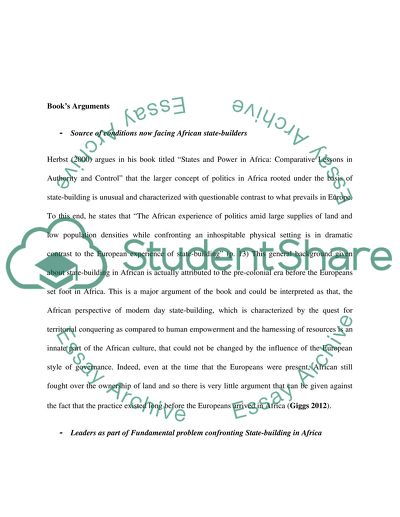Cite this document
(“States and power in Africa:comparative lessons in authority and Essay”, n.d.)
Retrieved from https://studentshare.org/history/1466208-states-and-power-in-africacomparative-lessons-in-authority-and-control-by-j-herbst
Retrieved from https://studentshare.org/history/1466208-states-and-power-in-africacomparative-lessons-in-authority-and-control-by-j-herbst
(States and Power in Africa:Comparative Lessons in Authority and Essay)
https://studentshare.org/history/1466208-states-and-power-in-africacomparative-lessons-in-authority-and-control-by-j-herbst.
https://studentshare.org/history/1466208-states-and-power-in-africacomparative-lessons-in-authority-and-control-by-j-herbst.
“States and Power in Africa:Comparative Lessons in Authority and Essay”, n.d. https://studentshare.org/history/1466208-states-and-power-in-africacomparative-lessons-in-authority-and-control-by-j-herbst.


